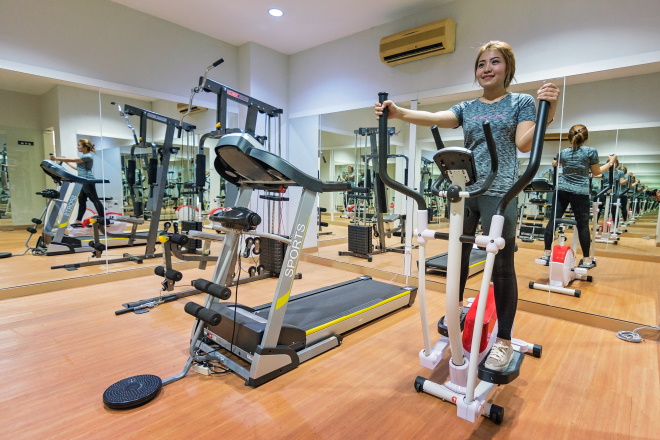
The Gen XY Lifestyle
Preventing high blood pressure, high cholesterol and high blood sugar
The three ‘negative health highs’ to develop are high blood pressure, high cholesterol and high blood sugar. We explore what the crucial risk factors of these health conditions are and how to prevent the onset of the three highs.
In Singapore, the risk of developing heart disease is increasing. A key factor is our ageing population coupled with lifestyle changes in recent decades and the general lack of sleep.
According to the Singapore Heart Foundation, 19 people die daily from cardiovascular disease (heart diseases and stroke) in Singapore. Overall, cardiovascular disease accounted for almost 1 out of 3 deaths in Singapore in 2020.
The three negative highs – high blood pressure, high cholesterol and high blood sugar – can contribute to conditions such as stroke, heart attack, heart failure and kidney failure, and blindness.
Risk factors associated with the three highs include:
#1 Hypertension
Non-modifiable Risk Factors:
- Genetics e.g. Family medical history
- Gender
- Age
- In Singapore, close to 1 in 4 adults between the age 30 – 69, and more than 1 in 2 elderly aged 60 – 69 have high blood pressure.
Modifiable Risk Factors:
- Diet – high salt intake
- Obesity
- Sedentary lifestyle – lack of exercise
- Smoking
- Alcohol
- Insufficient sleep
- Stress
- Air pollution
#2 High Cholesterol
Non-modifiable Risk Factors:
- Genetics (e.g. Family medical history)
Modifiable Risk Factors:
- Diet – high trans fat, processed food intake
- Obesity
- Sedentary lifestyle – lack of exercise
- Smoking
- Alcohol
- Insufficient sleep
- Stress
#3 Diabetes
Non-modifiable Risk Factors:
- Genetics (e.g. Family medical history)
Modifiable Risk Factors:
- Diet – Too much sugar intake
- Obesity
- Sedentary lifestyle – lack of exercise
- Smoking
- Alcohol
- Insufficient sleep
- Stress
- Drug-induced –Steroids
the Active Age discusses the three highs with Dr Tan Yong Seng, Vice-Chairman of the Singapore Heart Foundation.
the Active Age (AA): What are the hidden dangers of the three highs that are particularly susceptible to the ageing population?
Dr. Tan Yong Seng (TYS): As people age, their blood vessels wall become thickened, metabolic activity and functions will also decline with age, predisposing them to 3 highs. The hidden dangers of three highs are stroke, heart attack, heart failure and kidney failure, and blindness.
AA: Any advice on precautionary measures that individuals can take to prevent suffering from these medical conditions?
TYS: Remember the 3 ‘Earlys’ – “Early Prevention, Early Knowing (Diagnosis) and Early Treatment.”
Early Prevention is a heightened level of awareness (and) is the best precautionary measure to have. Through educational programmes and health talks offered by organisations like the Singapore Heart Foundation, members of the public can get to understand their risks and find out how to lower their chances of getting the 3 Highs.
Early Diagnosis. If you are in a certain high-risk group (for example, you have family history), you should take the initiative to go for routine health screenings early. If you do not measure your blood pressure, blood lipids and blood sugar level regularly, you will never know that you have high blood pressure, high cholesterol or diabetes, because they are mostly asymptomatic. When symptoms start to surface, e.g. headache, chest pain, shortness of breath, your blood pressure may be in very high level, or suffering the effects of the complications of the 3 Highs.
Pay attention to your lifestyle. If you realise that you are exercising lesser or eating many poor-quality food (for example, processed food, meat), it should be an alert to go for an early blood assessment to make sure you do not have the 3 highs.
Early Treatment. The elderly often fear that they have to take medicine for the rest of their life and are worried about the cost involved. However, they often forget that these chronic conditions can bring about severe complications such as stroke, heart attack, cancer, dementia, and the treatment costs for these will be much higher.
AA: What are the necessary lifestyle changes that have to be made by the ageing population to maintain a clean bill of health while ensuring quality of life?
TYS: I always advise my patients to watch what you eat, exercise often and be happy always!
Watch What You Eat with SHF’s 3-5-7 Heart Healthy Diet Principles. These are 3 Highs. Go for a diet high in fibre, fresh foods and plant protein. You should consume plenty of fruit, vegetables, soy products, beans and legumes. Besides fibre, especially soluble fibre which helps to lower cholesterol in your body, these colourful goodies also provide a wide range of vitamins, minerals and antioxidants.
5 Lows. You should greatly reduce the fat and cholesterol in your diet by choosing lean meat and skinless poultry cooked in healthy way (steam, poach, grill, stir fry, bake, boil, stew). Go easy on table salt, seasoning and pickles to keep your sodium intake low. If you have a sweet tooth, have your sweets or sugar sparingly. Wine may be beneficial for heart health but drink in moderation.
7 out of 10 (70 percent) full. Do you burp out loud after a meal? The chances are that you may have overeaten. If you think your stomach is 70 percent full, it is probably just right. Have small frequent meals instead of 3 big meals.

Exercise often and aim for at least 150 minutes of moderate to vigorous physical activity a week. For the elderly, do not just focus on aerobics exercises. It is very important to include resistance training to strengthen their muscles.
Be happy always by staying positive. I do not advocate the constant changing of medication (s) to reach the target goal. I encourage all my patients to go for positive lifestyle changes, thus reducing the reliance on medication.
AA: What do you think is the reason Singaporeans are prone to the three highs?
TYS: In my view, there are three reasons:
- Aging population: Singapore is the fastest aging country in the world. As a person ages, his/her bodily functions also decline, thus increasing his/her risks of the 3 highs.
- Lifestyle Changes: We have become more sedentary with advancement in technology. For example, more people are doing online shopping on their couch instead of doing retail shopping where they are required to walk. (Or they are) taking the lift instead of stairs.
- Lack of Sleep: People tend to watch dramas and sleep later. Insufficient sleep can bring about lower immunity, increased risk of the 3 highs, cancer, or infections.
AA: Given that lifestyle changes are inevitable when it comes to reducing our risk of the three highs, should our approach be sequential or concurrent when dealing with them?
TYS: Lifestyle changes need to be made concurrently. It cannot be done sequentially, for example, if you exercise a lot but continue to eat unhealthily, it will not be effective. The changes should be done holistically.
Many people believe in the 6 Pillars of Health, which are clean water, whole foods, sleep, exercise, mental wellbeing and community or social.
However, I believe in stacking on habits from the Foundation of Health, which include:
- Healthy diet
- Sufficient sleep
- Gut health
- At least 150 minutes of moderate to vigorous intensity exercise per week
- Detox – Eat more fruit and vegetables
- (Maintain and improve) mental health especially during this period when seniors are feeling more stress from home confinement due to the pandemic

AA: What tips do you have as for many people as the range and number of changes can be demotivating or lead to procrastination?
TYS: When you don’t plan to make a change, you will procrastinate. However, once you are determined, go forward to make the tiny changes every day.
By tiny, I mean make a change 1 percent at a time.
For example, aim to go for a walk every evening, starting with 10 minutes on the first day, and increase to 11 minutes the next day, and further increase by another 1 minute every subsequent day till you reach your target goal.
Feature Photo by Kiley Lawson on Unsplash






